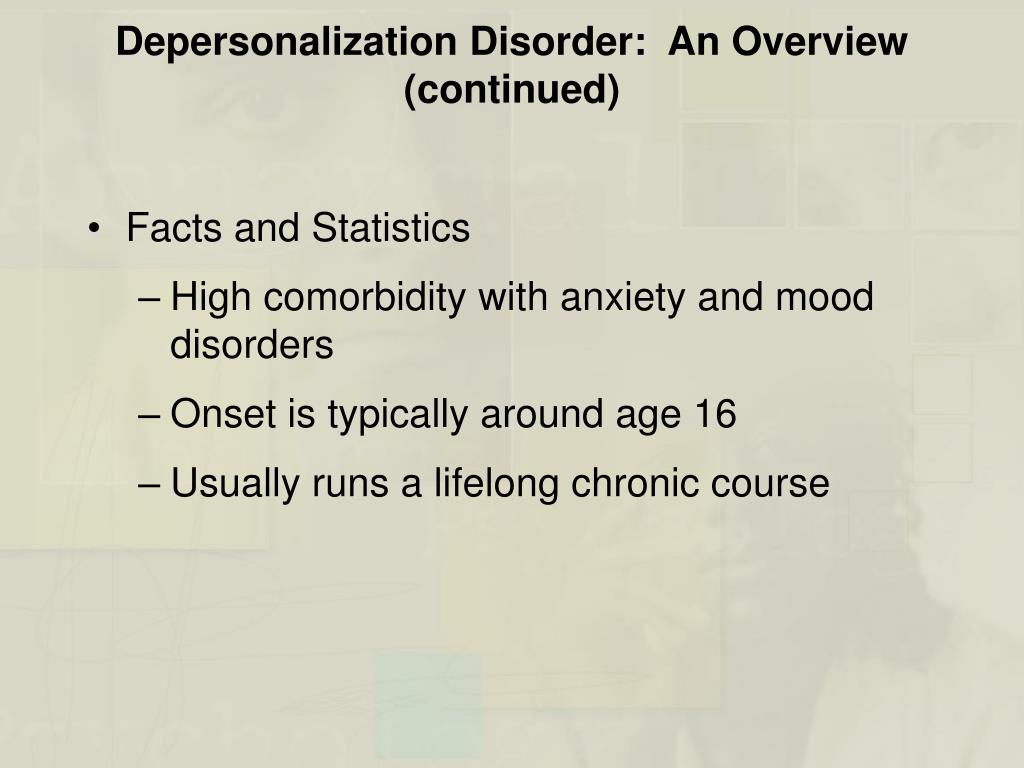


Experiencing a severe accident, being subjected to an assault or suffering emotional abuse, for example, can invoke this psyche-protective response. Onset of depersonalization disorder is also associated with childhood trauma, in particular emotional abuse or neglect dissociation is a natural response to traumatic events that are out of the sufferer’s control. Misuse of drugs like marijuana and hallucinogens.Episodes of severe stress, depression and panic.There is no single known cause for depersonalization disorder or depersonalization-derealization syndrome but a number of factors have been linked to the onset of the condition, most commonly: In sufferers experiencing the onset of depersonalization disorder at the age of 40 or over, MRI and EEG tests may be performed to check for physical causes, and urine toxicology tests may also be advised 4. The disorder causes significant distress and/or social or occupational impairmentĪ range of diagnostic techniques may be employed for greater insight into the patient’s condition, such as structured interviews, questionnaires and other psychological tests.Sufferers have an intact sense of reality and know their unreal experiences are not real.Onset of symptoms that cannot be attributed to another disorder or outside agency.


Feeling detached from their surroundings.Sufferers of derealization may experience: Feeling unreal or like a spectator in their own lives.Difficulty recognizing their own reflection.Onset of the condition is usually at around 16 years of age 2.Īn individual suffering from depersonalization may experience: Patients may experience depersonalization in relation to themselves, as if they are viewing their lives from the outside, while others might experience derealization, which relates to feeling detached from one’s surroundings and other people, who may appear as if part of a dream 1.ĭepersonalization disorder and depersonalization-derealization syndrome are diagnosed in an estimated two per cent of the population and affect women and men equally, although there is growing consensus that the disorder is more common that official figures suggest. Depersonalization disorder falls under the dissociative disorders group of conditions, which are characterized by feelings of disconnection from reality.ĭepersonalization disorder, or depersonalization-derealization syndrome, is an often chronic and distressing condition that causes the sufferer to feel that they are detached from themselves, their feelings or their reality, in an almost robotic sense.
#DEREALIZATION VS DEPERSONALIZATION MANUAL#
Depersonalization disorder, also known as depersonalization-derealization syndrome, is a DSM-5 (Diagnostic and Statistical Manual of Mental Disorders, 5th ed.) diagnosis assigned to individuals who persistently experience feelings of detachment, either bodily or cognitively, from themselves or from their environment.


 0 kommentar(er)
0 kommentar(er)
